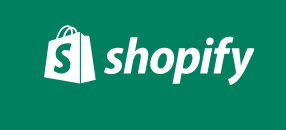Table of Contents
In this digital realm, a website is no longer an online brochure but a vital component of a successful business strategy. However, building a website for a business often needs technical expertise and can be monotonous for non-developers. That’s where no-code development tools come in. These user-friendly tools help businesses create impressive functional websites without writing a single line of code.
According to recent estimates, the global no-code development market was valued at almost 22.5 billion USD in 2022 and is forecast to reach approximately 32 billion USD in 2024. The market is projected to grow with a CAGR of 26.1% over the period. This significant growth shows the booming of the no-code development market due to the increasing demand for digital solutions.
In this article, we’ll explore the top 8 no-code web development tools that can help your small business create a professional and engaging online presence. From beginner-friendly platforms to upgrade tools for complicated applications, there are no-code solutions for every requirement.
Disclaimer: Our recommendations are based on the pricing, pros, cons, and extra facilities offered by the no-code tools. The information provided here was correct at the date of publication but may be subject to change. The list is arranged as per the customer’s ratings and reviews, from higher to lower.
Top 8 No Code Development Tools for Business Websites
1. Wix

Wix is a cloud-based website builder that offers both design services and hosting for your website. It is one of the best no-code tools because you can develop your website step by step with no prior experience of coding. You can browse through the available templates and customise them with the intuitive drag-and-drop feature. Then add and organise your content including images, videos, blogs and set up your domain. Lastly, optimise your site for SEO and finally publish it. Wix aims to help business owners get a website built and operational in a short period without any coding expertise. It is a cost-effective solution for building a website to develop a brand of a business.
Pricing:
Wix provides a free plan for the beginner. All plans include a custom domain, reliable web hosting, AI creation tools and 24/7. The other plan includes:
- The Light plan is £9/month.
- The Core plan is £16/month.
- The Business plan is £25/month.
- The Business Elite is £119/month.
Ratings & Review:
4.6 stars out of 5 with 19k customer reviews on Trustpilot.
Key features:
- It’s an AI-powered website builder.
- It offers more than 900 templates.
- Flexibility of easy-to-use web-design tools.
- 24/7 customer support.
- You can run your business through the Wix mobile app.
What you can do with Wix:
Wix helps to set up an online store to sell products, if you offer services, you can take bookings directly through your websites and optimise marketing tools such as SEO, email marketing and social media integrations to promote your website.
Pros:
- Free to use.
- Easy interface to learn.
- Ability to customise.
- It provides web security from threat prevention to real-time detection and rapid response.
Cons:
- You are not able to change templates once it is set.
- There are storage limits on all plans.
- Limited SEO tools.
2. Shopify

Shopify is the renowned no-code platform for building eCommerce websites. It bundles the commerce activities into a single platform. This secure cloud-based platform helps you to access your data safely and flexibility to run your business from anywhere.
Pricing:
You can start for free but after that, you can enjoy the first month for £1. Every plan gives you the opportunity for in-person selling, multiple sales channels, and In-depth analytics. The other plans include-
- The basic plan for solo entrepreneurs – £19/month.
- Shopify for small teams – £49/month.
- Advanced plan – £259/month.
- Plus plan for more complex businesses starting at on a 3-year term (price only shown in USD)
Ratings & Review:
1.5 stars out of 5 with 2.4k customer reviews on Trustpilot.
Key Features:
- Online storefront.
- Shopify App store has more than 7000 apps to increase the store’s features and functionalities.
- Free business tools for logo makers, and business name generators.
- WHOIS domain lookup.
- Payment gateway integration.
- Customer support.
What you can do with Shopify:
Shopify helps to create a fully customizable online store, manage sales through multiple channels, inventory management, and utilise built-in marketing tools.
Pros:
- Intuitive interface and user-friendly website design tools.
- Third-party integration adds customised features and functionality to your site.
- 24/7 customer service.
- Sell online or in person.
Cons:
- Top-tier plans are expensive as compared to other eCommerce website builders such as Wix and Squarespace.
- A limited number of free themes.
- High transaction fees if you use a third-party payment provider but there are no transaction fees with Shopify payments.
- Limited AI integration.
- Costly app ecosystem.
3. Squarespace

Squarespace allows businesses to create professional-looking websites easily with built-in analytics, marketing, and SEO tools. With a wide range of templates and simple features, it helps users build and customise their business websites easily without having prior knowledge of coding. With the simple drag-and-drop feature, you can customise your content and set up your domain by adding essential pages like “About us”, “Services”, and “Contact” and finally publish your website.
Pricing:
If you want to build your website, you can start your 14-day free trial with Squarespace but their personal plan starts at $16 per app/month. There are some additional fees including:
- Business plan – £17/month.
- Basic Commerce plan – £23/month.
- Advanced Commerce plan – £35/month.
Ratings & Review:
1.2 stars out of 5 with 1.1k customer reviews on Trustpilot.
Key Features:
- Build a page with pre-designed structures.
- Customizable content layouts.
- Easily duplicate pages and content to speed up the website-building process.
- Multiple contributors and access levels.
- Built-in mobile websites.
- Google and Typekit fonts.
- Free high-quality images through Unsplash.
What you can do with Squarespace:
Squarespace helps to create a website for your business, host your content, register your custom domain name, sell products and track the analytics of your site.
Pros:
- Squarespace app.
- Best for personal use.
- User-friendly editor.
- Strong eCommerce tools
Cons:
- Higher price tag.
- Limited customization options.
- Limited third-party tools for business websites. You have to be stuck within the ecosystem of Squarespace.
4. Weebly

Weebly is a simple drag-and-drop website builder which offers tools for eCommerce, SEO, and marketing as well as different customisable templates. You can create a website without any coding knowledge. For this, you need to create an account with Weebly and select a suitable theme from a wide range. The simple drag-and-drop editor helps to customise your theme and organise your content using Weebly’s easy-to-use tools. Then set up your domain and optimise for SEO and your website is ready without writing a single line of coding.
Pricing:
Weebly has a free plan that is for basic use. The other plans include-
- Personal plan to connect a custom domain – £5/month
- Professional plan – £9/ month.
- Performance plan – £19/month.
Ratings & Review:
1.2 stars out of 5 with 702 customer reviews on Trustpilot.
Key features:
- Website builders and advanced eCommerce tools help to create the perfect site.
- The cutting-edge mobile apps track performance easily, interact with visitors, and manage store orders from anywhere.
- Advanced design tools.
- Third-party integration for your website, and store.
- Reliable and free web hosting.
What you can do with Weebly:
You can create a website for personal or business use, you can use email marketing, Google Analytics guide, and brand building guide.
Pros:
- You can use your domain name.
- Easy to use.
- Offers eCommerce features.
- Competitively-priced premium plans.
- No coding skills are required.
Cons:
- Limited customization options.
- Phone support is only available on the professional plan and above.
- It doesn’t offer as many features or themes as its competitors.
- It doesn’t stress much control over your website’s design as compared to other builders such as Wix or Squarespace.
5. Webflow

If you’re looking for an extremely beautiful and professionally intuitive website, Webflow is there to help you. An individual gets the full power of JavaScript, CSS and HTML without using the code. It provides a visual way to build and manage websites, making it easier for businesses and individuals to bring their digital ideas into reality.
Pricing:
Webflow offers a free starter plan for beginners. This free plan has some inadequate facilities than the paid plans. Some additional plans include:
- Basic plan for simple and static sites – $14/month billed yearly.
- CMS for blogs or other content-driven sites – $23/month billed yearly.
- Business plan for larger sites – $39/month billed yearly.
Ratings & Review:
2.1 stars out of 5 with 132 customer reviews on Trustpilot.
Key Features:
- Library of pre-designed dynamic templates.
- Build CSS grid-powered layouts visually.
- Easier way to display codes on your website without writing codes and updates to ordered lists.
- Dynamic content filtering and sorting.
- It offers CMS REST API for business.
- It helps to create a CMS from your favourite apps via Zapier without writing code.
- Easy client collaboration.
What you can do with Webflow:
Webflow helps you to create any kind of website from a basic blog to a full-fledged eCommerce store. It also optimises your websites and markets your products and services.
Pros:
- Powerful CMS.
- Excellent levels of design customisation without the knowledge of coding.
- Huge range of templates suitable for e-commerce and dynamic content.
- SEO features.
Cons:
- It is relatively difficult for a beginner to use.
- No live chat or phone support.
- More expensive than some competitors.
- Reliant upon third-party and user-generated content.
6.PageCloud

Pagecloud lets you create and launch websites and keeps you a step ahead of your competitors. It offers stunning customisable templates that can be quickly expanded with pre-built sections. You can create your free one-page business website with PageCloud in just a few clicks without having any coding experience. After signing up for a PageCloud account, you can choose any customisable pre-designed template for your website. Once you get the template that matches your overall demand, click select and your one-page website is being created. In the next step, with the help of the PageCloud editor, you can customise your page with a simple drag-and-drop editor. Now your website is ready to publish. You can publish your page in your dashboard and select the free website plan.
Pricing:
PageCloud offers a free trial for your first page but it has some restrictions as compared to other plans. The premium plans include the ability to add a custom domain, store, additional pages, and team members. The other plans include-
- Launch plan for small businesses and entrepreneurs- $20/month, billed annually.
- Grow plan for growing businesses and teams- $36/month, billed annually.
- Optimise plan for growing marketing efforts and high-traffic websites-$69/month, billed annually.
Ratings & Review:
4.8 Stars out of 5 stars with 78 customer reviews on Trustpilot.
Key Features:
- You can easily assemble the professionally designed template and expand your website in seconds.
- Innovative easy-to-use design features help to create unique layouts and create websites in record time.
- Auto layouts enable the use of padding and alignment to create flexible content.
- It provides an animation facility to take your website to the next level.
- There is an eCommerce facility.
What you can do with Pagecloud:
Sell products, services, and digital goods with inbuilt SEO options.
Pros:
- Easy to use.
- E-commerce features.
- Annual plans come with a free domain for one year.
- Integration with Google Analytics and Tag Manager.
Cons:
- Lack of customer support.
- Issues with mobile optimization.
7. Carrd

Carrd is a no-code development tool which is ideal for creating one-page websites or landing pages. It is a minimalistic platform that focuses on simplicity and fast website creation for small businesses or personal projects.
Pricing:
You can build up to three sites per account and use all of Carrd’s core features for free. You can upgrade your Carrd experience by availing of the Go Pro plan that starts from $19/year. This plan includes-
- Custom domains.
- Build and publish more than 3 sites from a single Carrd account.
- Payment-enabled forms.
- Third-party services like Stripe, PayPal, Typeform etc.
- Optional Google Analytics.
- No branding.
Ratings & Review:
3.5 stars out of 5 with 21 reviews on Trustpilot.
Key features:
- It creates free single-page sites quickly with the help of a straightforward editor.
- All the templates are responsive.
- You can create up to three sites for free and use them forever.
What you can do with Carrd:
Carrd is best for those who are learning how websites work. It is great for people who just need a simple brochure website to represent a simple product. Small business owners find it interesting as they can use the webpages built with the online landing pages.
Pros:
- It is the simplest free website builder you can find. The learning curve is practically non-existent.
- You can build up to three free websites in one account unless you need any extra features.
- Though the websites scale automatically, you can use it in a manual mode and control the look of your page on smartphones and tablets.
Cons:
- You can create only one-page websites. There are not as many elements as you might want and editing elements are quite restrictive.
- Carrd can’t add a blog to the website.
- There is no eCommerce option in Carrd.
8. Tilda

It is designed for creating a visually rich website without code. Tilda provides a block-based editor for businesses to easily design websites with good SEO optimisation and responsiveness. With the intuitive format of Tilda, you can quickly build a new website, online store, or landing page.
Pricing:
There is a free plan for everyone to start simply. But there are some restrictions in this free plan as compared to the paid ones. In this free plan, you can get 1 website free. Some additional pricing systems include-
- Personal plan – $10/month.
- Business plan – $20/month.
Rating & Review:
4.4 stars out of 5 with 19 customer reviews on Trustpilot.
Key Features:
- Innovative block editing with professionally designed ready-made blocks.
- 550+ blocks in the ever-growing block library.
- 210+ ready-made templates.
- AI text generation.
- Ready-made template for online shopping.
- Free icon
What you can do with Tilda:
For any kind of online project, Tilda is a great choice. It easily helps you to make business websites, landing pages, online stores, personal brand websites etc.
Pros:
- Advanced block editor to create visually appealing websites.
- Seamless integration with various payment platforms.
- Built-in SEO improves the website’s visibility.
- Detailed analytics to track the website’s performance.
Cons:
- The block editor requires some experience to fully utilize its capabilities.
- Limited customer support.
- No facility to upload documents.
- No member’s area is a limitation for some users.
Conclusion
In the digital realm where technology predominates, the ability to develop and manage a strong online presence or online store has become the first and foremost factor for businesses of all sizes. Traditionally, this has needed specialised technical skills and a significant time investment. However, the emergence of no-code development tools has liberalised web development, empowering businesses to develop and manage their websites without extensive coding expertise. The tools mentioned in the above article show a glimpse of the wide landscape of no-code solutions. From drag-and-drop interface to AI-generated automation, these tools provide a wide range of features and functionalities to fulfil the needs of businesses at different stages of growth. As the no-code landscape is continuously evolving, we can expect to see more innovative tools and features in future.
If you want us to add a suggestion here based on your experience, please get in touch with us!
Author Profile
- Blogger and Educator by Passion | Senior Online Media & PR Strategist at ClickDo Ltd. | Contributor to many Education, Business & Lifestyle Blogs in the United Kingdom & Germany | Summer Course Student at the London School of Journalism and Course Instructor at the SeekaHost University.
Latest entries
 BusinessFebruary 1, 2026Why Modern Warehouse Management is the Secret to UK Retail Growth
BusinessFebruary 1, 2026Why Modern Warehouse Management is the Secret to UK Retail Growth BusinessDecember 2, 2025How to Build an Effective Progression Plan in Your Company
BusinessDecember 2, 2025How to Build an Effective Progression Plan in Your Company BusinessOctober 24, 2025Legionella Risk Assessment: 5 Things Every Entrepreneur Needs to Know
BusinessOctober 24, 2025Legionella Risk Assessment: 5 Things Every Entrepreneur Needs to Know EmploymentSeptember 2, 2025Why Motorbike Accident Staff Claims are a Growing Business Risk
EmploymentSeptember 2, 2025Why Motorbike Accident Staff Claims are a Growing Business Risk





